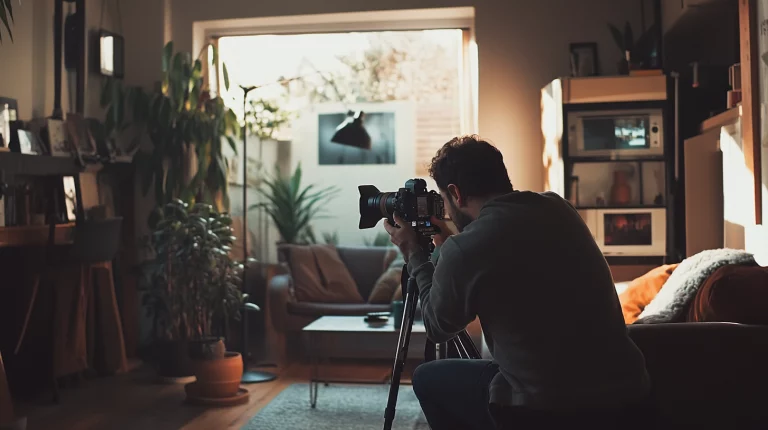13 Tips for Managing Screen Time and Boosting Well-Being
In the present-day digital age, displays and screens are commonplace in our daily lives. Every part of our everyday lives is impacted by technology, from computers and smartphones to tablets and TVs.
Even though screens provide many advantages, such as enhanced communication, information access, and entertainment, spending too much time in front of them can be harmful to our physical and emotional well-being.
Overuse of screens has been connected to a number of health issues, such as migraines, neck discomfort, sleep disruptions, eye strain, and even obesity.
Excessive screen usage can also have detrimental effects on mental health, lower productivity, and social isolation.
It’s critical to properly regulate your screen time if you want to achieve a healthy balance while improving your well-being. These pointers will assist you in reaching this objective:
Define Your Boundaries Clearly
Establishing limits is a highly effective approach to controlling screen use. Set a daily limit for the amount of time that you would like to be spending on screens, and follow it. Utilize timers or applications to monitor your consumption and maintain accountability.
As an example, you might choose two hours as your daily screen time restriction and track your usage with productivity software. Making a timetable that designates particular times for using screens and engaging in other activities may also be beneficial.
Establish Screen-Free Areas
Set aside some rooms in your house, including the dining room or bedroom, as screen-free zones. You’ll be able to turn off technology and concentrate on other things by doing this.
To encourage relaxation and better sleep, you can set aside a “screen-free hour” in advance before going to bed. You might also make the dining area a screen-free zone in order to promote family dinners and discussions.
Use of Screens With Mindfulness
Use screens mindfully rather than idly browsing around social media or just watching movies. While utilizing screens, be conscious of your thoughts and feelings and how they impact your mood.
Make an effort to interact with uplifting and valuable stuff. When using screens, you may also employ mindfulness practices like meditation or deep breathing to help you remain focused and in the moment.
Reduce the Screen Time Before Bed
Blue light from screens might interfere with your sleep. If you want to improve the quality of your sleep, avoid using screens for a minimum of one hour before bed.
Consider reading a genuine book or listening to calming music as an alternative. If you must use a screen just before going to bed, use blue light-blocking glasses or an app.
Take Rest Breaks
It is crucial to take regular pauses from screens in order to allow both your mind and eyes to relax. Every 20 minutes, according to the 20-20-20 rule, one should gaze at an item 20 feet apart for 20 seconds.
Another option is to follow the 60-20-20 rule, which calls for 20 seconds of focused attention on an item 20 feet away every 20 minutes. You may also take quick pauses during your day to stretch, walk about, and allow your eyes to unwind.
Take Part in Outdoor Activities
The benefits of outdoor exposure are beneficial to your physical and emotional well-being. Don’t forget to include outside activities like walking, hiking, or gardening in your everyday routine.
Try to spend 30 minutes or more a day outside. Being in nature may help lower stress, elevate mood, and stimulate the creative process.
Give Real-Life Interactions Priority
Reduce the amount of time you spend on screens and try to interact with people in person. Participate in community service, join social clubs, and spend time with your friends and family.
Personal relationships can be helpful in reducing feelings of isolation and loneliness. They can also present chances for heartfelt discussions, belly laughs, and encouragement.
Seek Expert Assistance
Consider getting professional assistance if you struggle with related concerns or find it hard to control your screen usage. For instance, if you live in California, you can look for a mental health facility in California.
A counselor or therapist can offer direction and assistance. You may enhance your general well-being and control your screen time with the assistance of a mental health expert. They can also assist you in treating any deeper psychological issues that might be causing you to struggle with screen time.
Mindful Breathing Techniques
You can control your tension and lessen your anxiety by engaging in mindfulness along with deep breathing exercises. To encourage relaxation and cut down on screen time, include these activities into your regular routine.
To master various breathing methods, you might experiment with internet tools or guided meditation applications. Even when using screens, you may maintain your attention and presence of mind by practicing mindfulness and deep breathing.
Digital Detox
Sometimes, you should consider going fully digital-detox to avoid using any technology at all. You may refocus and reestablish a connection with yourself by doing this.
Start with a one- or two-day brief digital fast, and as you get more comfortable, extend the fast. Digital fasting can be an excellent method to lower stress, sharpen attention, and strengthen bonds with family and friends.
Acquire New Skills
You can cut down on screen time and enhance your general well-being by engaging in creative and intellectually stimulating hobbies and activities. Take up new hobbies and acquire new abilities, like writing, drawing, or playing an instrument.
These pursuits might bring one a feeling of satisfaction and success. They can also assist you in discovering new hobbies and interests.
Utilize Tools for Screen Time Management
You can measure and regulate your screen time with the aid of a plethora of tools and applications. Look at solutions that fit your interests and demands. Screen Time, Moment, and Freedom are a few well-known screen time control applications.
These tools can assist you in setting and achieving objectives as well as offering insightful information about how you use screens.
Set Realistic Goals
Don’t attempt to cut down on screen time entirely. Rather, make reasonable plans to cut back on your consumption progressively. Honor your accomplishments and practice self-compassion.
Keep in mind that small adjustments might result in large ones. While controlling your screen time, it’s critical to practice self-compassion and steer clear of perfectionism.
Conclusion
Put your well-being first, have patience, and never give up. You can properly balance technology use with your general well-being by putting these ideas into practice.







